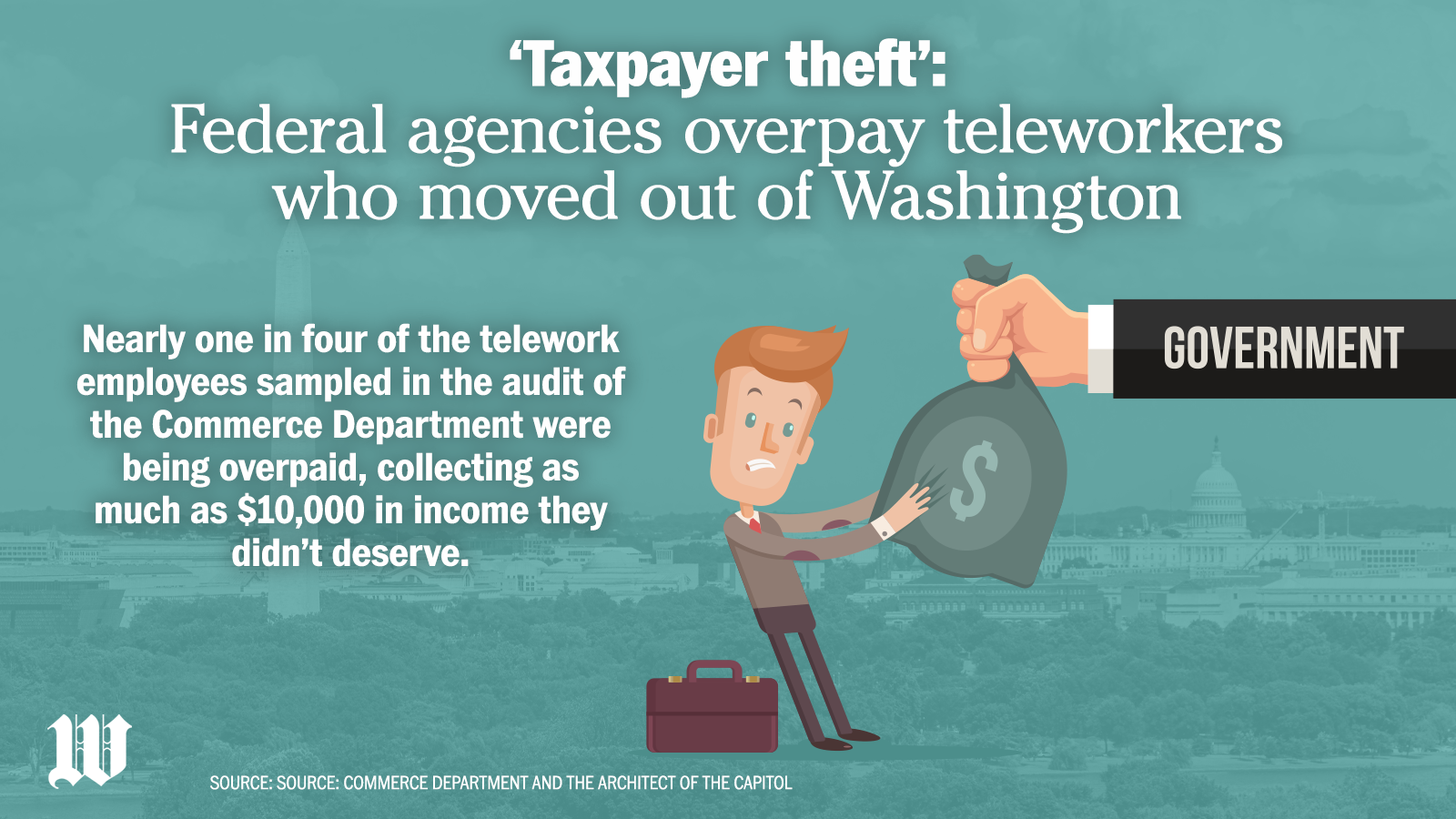Federal employees approved for telework have been bilking the government by collecting Washington-area pay rates while living in much lower-cost regions.
Inspectors general for the Commerce Department and the Architect of the Capitol, a congressional office, found that a significant percentage of their employees approved for telework were collecting salaries with locality pay rates higher than where they are now living.
Nearly 1 in 4 telework employees sampled in the Commerce Department audit were overpaid, collecting as much as $10,000 in income they didn’t deserve.
Meanwhile, the Architect of the Capitol showed a stunning 68% overpayment rate for telework employees.
Sen. Joni Ernst, Iowa Republican, has been prodding agencies to conduct these reviews after the growth of telework since the onset of the COVID-19 pandemic. She worries that taxpayers are being hit from both sides, with employees getting paid too much for too little remote work as the government pays for the empty buildings where their offices used to be.
“Bureaucrats not showing up to work are being overpaid and avoiding accountability,” Ms. Ernst’s office said in releasing the Commerce Department audit.
She called it “taxpayer theft.”
The overpayments stem from the way federal pay works.
The federal government divides the country into nearly 60 regions. Salaries are adjusted based on work location.

On the federal pay scale, an employee in Virginia Beach who is at GS-9, step one, made roughly $7,000 less than a similar employee in the Washington area last year. A GS-13 step one employee made about $12,000 more by working in the Washington area.
The audit examined 25 remote workers and found that 20 were listed with the wrong duty stations. Three were underpaid, but 17 collected too much based on their work locations. They averaged nearly $6,000 in overpayments.
According to the Architect of the Capitol’s audit, legal and financial employees were the most likely to work remotely.
The inspector general said the agency bungled by not updating the employees’ duty stations in the records, even though they had approved the telework agreements.
That seems to confirm Ms. Ernst’s worry that taxpayers suffer the consequences of a rush to grant work flexibility.
The Commerce Department inspector general examined 31 telework employees for its case study. Seven were found to have been paid too much during the period under study.
Overpayments ranged from about $3,000 to more than $10,000 for one U.S. Patent and Trademark Office employee.
Department officials said they were trying to claw back the money from most of the employees. In one case, the employee had left the department. In another case, officials said they couldn’t pinpoint when the overpayments began or who was responsible, so they are not trying to collect from that person.
Auditors said the Commerce Department doesn’t know whether telework employees are meeting their agreement regarding the days they should be in the office.
That, too, could result in overpayments.
Commerce Deputy Assistant Secretary Jeremy Pelter acknowledged the bungles in response to the inspector general and promised reforms such as prompting managers to update duty stations for remote workers.
Still, Mr. Pelter said he didn’t see a widespread issue with telework employees not showing up on required days.
“The Department remains committed to strategically using workplace flexibilities, such as remote work and telework, to recruit and retain talent while ensuring employees receive the correct locality pay in accordance with applicable regulations and policy,” he wrote.
The Washington Times has reached out to the Architect of the Capitol for this report.
For more information, visit The Washington Times COVID-19 resource page.
• Stephen Dinan can be reached at sdinan@washingtontimes.com.




Please read our comment policy before commenting.